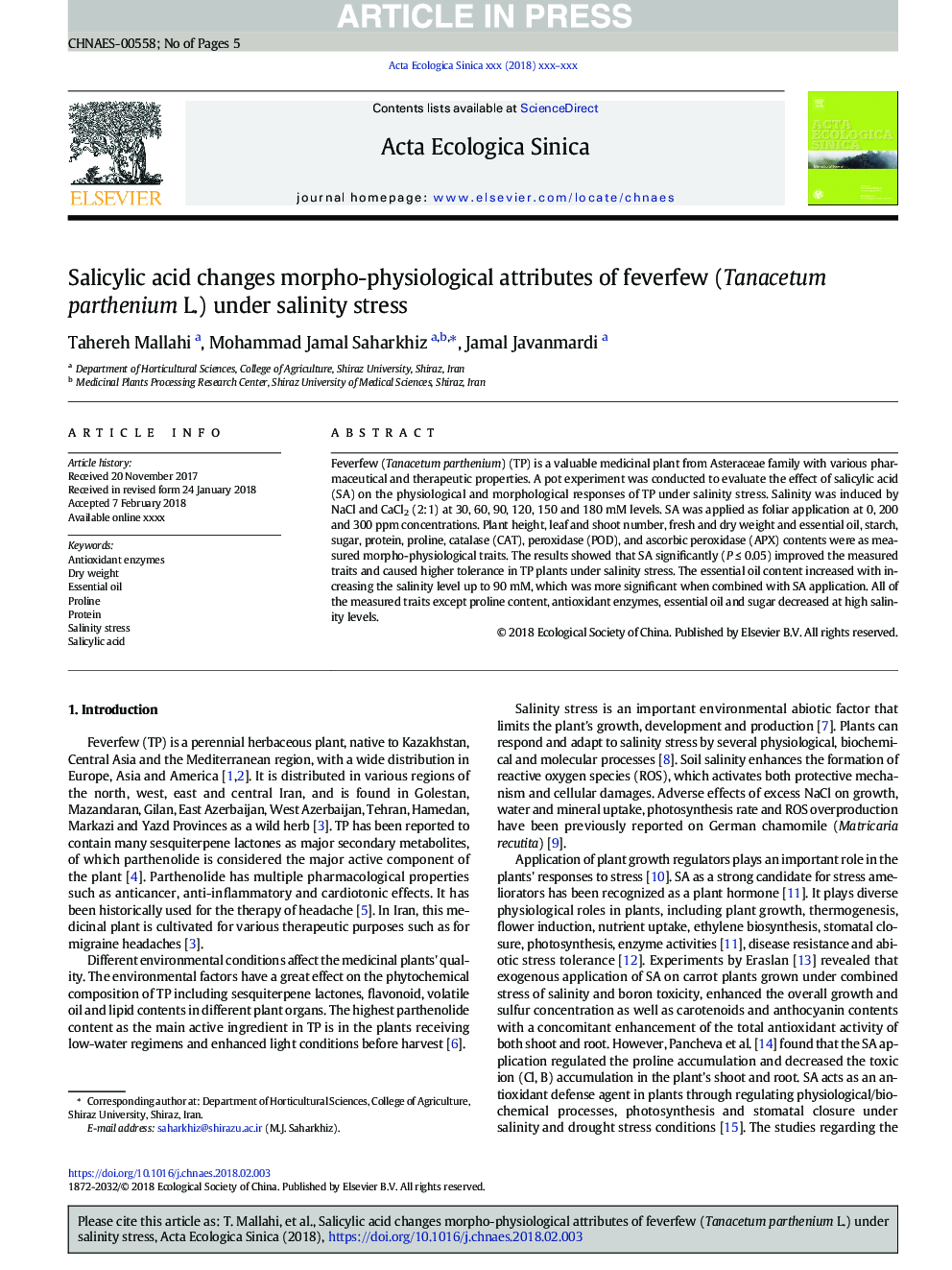| Article ID | Journal | Published Year | Pages | File Type |
|---|---|---|---|---|
| 10223313 | Acta Ecologica Sinica | 2018 | 5 Pages |
Abstract
Feverfew (Tanacetum parthenium) (TP) is a valuable medicinal plant from Asteraceae family with various pharmaceutical and therapeutic properties. A pot experiment was conducted to evaluate the effect of salicylic acid (SA) on the physiological and morphological responses of TP under salinity stress. Salinity was induced by NaCl and CaCl2 (2:1) at 30, 60, 90, 120, 150 and 180 mM levels. SA was applied as foliar application at 0, 200 and 300 ppm concentrations. Plant height, leaf and shoot number, fresh and dry weight and essential oil, starch, sugar, protein, proline, catalase (CAT), peroxidase (POD), and ascorbic peroxidase (APX) contents were as measured morpho-physiological traits. The results showed that SA significantly (P â¤Â 0.05) improved the measured traits and caused higher tolerance in TP plants under salinity stress. The essential oil content increased with increasing the salinity level up to 90 mM, which was more significant when combined with SA application. All of the measured traits except proline content, antioxidant enzymes, essential oil and sugar decreased at high salinity levels.
Related Topics
Life Sciences
Agricultural and Biological Sciences
Ecology, Evolution, Behavior and Systematics
Authors
Tahereh Mallahi, Mohammad Jamal Saharkhiz, Jamal Javanmardi,
